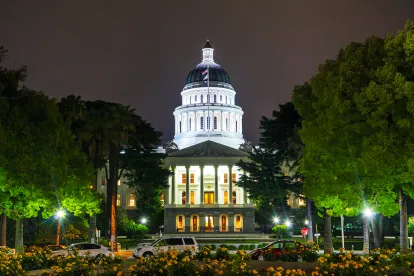The California Supreme Court heard oral argument today in Adolph (Erik) v. Uber Technologies, Inc., S274671, on the question of whether Private Attorneys’ General Act claims under Labor Code section 2698, et seq. (PAGA) can be brought on behalf of other employees in court despite a plaintiff’s agreement to arbitrate his/her individual PAGA claims.
Labor Code section 2699(a) states, in part, that an employee who has suffered a Labor Code violation covered by PAGA can seek civil penalties “on behalf of himself or herself and other current or former employees . . . .” As we discussed here, the United States Supreme Court in Viking River Cruises v. Moriana decided that under the Federal Arbitration Act (“FAA”), PAGA claims can be divided into individual claims and representative claims on behalf of other employees, and the claims belonging to the individual employee can be sent to arbitration. In its decision, the majority writing for the United States Supreme Court articulated its view that individual arbitration would seem to deprive the employee of standing to bring claims on behalf of other employees in court. In a concurrence, Justice Sotomayor disagreed with the Court’s view on standing, stating that it is a state law question whether standing would still exist.
That standing issue was argued before the California Supreme Court today and a ruling will be issued within the next 90 days.
During oral argument, Justice Liu challenged Uber’s counsel on the issue of whether the FAA would be violated if the representative claims were litigated in court, even if the individual PAGA claims were sent to arbitration. The Justice noted it seemed to be more of an issue of state law.
Focusing on the PAGA statute, Adolph argued that Labor Code section 2699(a)’s use of the word “and” must mean the employee cannot be limited to the arbitration of individual claims but lose standing to litigate claims for other employees in court. Uber countered that there is a standing requirement under 2699(a) because the statute requires only one aggrieved employee, and the plaintiff must sue on at least his own behalf.
In repeated questioning, Justice Liu queried why a court could not just accept the arbitrator’s determination regarding any Labor Code violations as to the individual employee and then adjudicate the representative claims based on that finding. Adolph unequivocally agreed. There seemed to be some consensus that if a plaintiff could represent other employees for PAGA violations, even if the employee was required to arbitrate the individual claims, the representative claims should proceed only after the conclusion of the individual arbitration.
What appeared to be a sign that standing would not be lost by engaging in an individual arbitration, Justice Liu noted that California has a public policy favoring representative claims and Viking River Cruise did not question that premise. Stay tuned.


 />i
/>i

